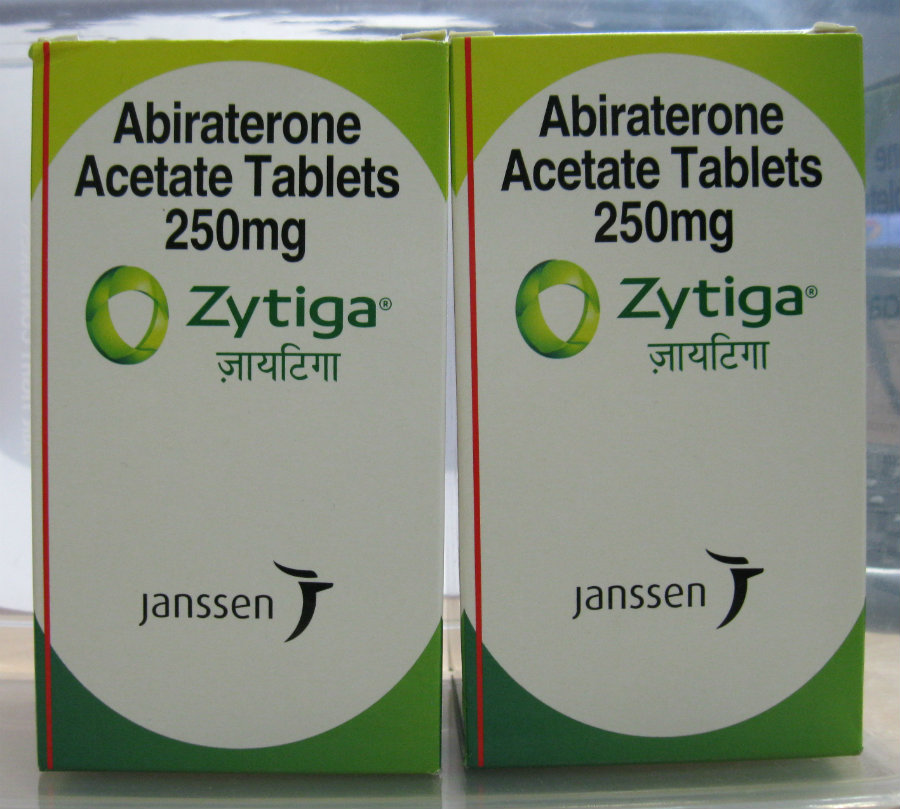A new study found that Abiraterone acetate, a drug to treat prostate cancer, saved more lives and helped with the survival of patients when the drug was offered earlier.
Adding abiraterone to hormone therapy at the beginning of treatment for prostate cancer improves survival by 37 percent, according to the results of one of the largest-ever clinical trials for prostate cancer.

The findings were presented at the 2017 American Society of Clinical Oncology (ASCO) Annual Meeting in Chicago and were published in the New England Journal of Medicine on June 3.
New abiraterone treatment reduced prostate cancer progression by 70 percent
The STAMPEDE trial was funded by the Cancer Research UK, and researchers believe the drug could change the standard of care for men with prostate cancer. For this part of the STAMPEDE trial over 1,900 patients were recruited, and while half the men were treated with hormone therapy, the other received hormone therapy and abiraterone. Results showed that man who received abiraterone saw a 70 percent reduction in disease progression.
Abiraterone is usually given to men with advanced prostate cancer that has spread and has stopped responding to hormone therapy. The researchers believe the findings show there’s an added benefit to patients who are beginning long-term hormone therapy.
“These are the most powerful results I’ve seen from a prostate cancer trial – it’s a once in a career feeling,” said Professor Nicholas James, chief investigator of the Cancer Research UK-funded STAMPEDE trial from the University of Birmingham, according to The Institute of Cancer Research. “This is one the biggest reductions in death I’ve seen in any clinical trial for adult cancers.”
James noted that abiraterone is already used to treat some men whose disease has spread, but that their results show much more could benefit. He added that the drug also reduced the rates of severe bone complications, which is a significant problem in prostate cancer, by more than a half. James also said he hopes these results can change clinical practice.

A patient named Alfred Samuels, 59, was diagnosed with advanced prostate cancer in January 2012 and joined the STAMPEDE trial in March. Samuels said that he felt like his world fell apart overnight, as the doctors told him that surgery wasn’t an option for him because the cancer had spread beyond his prostate.
“But my clinician suggested that the STAMPEDE trial might be a good option. As part of the trial, I started taking abiraterone four times a day and had a hormone injection every eight weeks,” said Samuels, according to The Institute of Cancer Research. “During the first six months, tests showed that the treatment was working. I’m still on the trial, which I find reassuring and, fortunately, my cancer is being managed well.”
The drug prevents production of hormones that fuel growth of the cancer
Prostate cancer cells typically depend on testosterone to grow. Standard hormone therapy blocks the action of testosterone, halting the disease. Abiraterone goes even further and shuts down the production and development of the hormones that fuel prostate cancer’s growth.
Data shows that around 46,500 men are diagnosed with prostate cancer in the UK each year, and over 11,000 of them die from the disease. The Centers for Disease Control and Prevention (CDC) estimated that 176,450 men in the United States were diagnosed with prostate cancer in 2013, and 27,681 men died from the disease that year.
The STAMPEDE trial has already changed clinical practice, as data released last year led to docetaxel chemotherapy now being part of the standard of care for a lot of men with prostate cancer. Scientists working with the STAMPEDE trial believe more data will come out in the next years, because of the innovative design of the trial.
Professor James said that they are so incredibly thankful to the patients and clinical staff who have agreed to take part in the study. He added that with their generosity, scientists could carry out research that will help save many lives.
Abiraterone is already being used before chemotherapy
Professor Johann de Bono, Regius Professor of Cancer Research at The Institute of Cancer Research in London, and co-author of the new study, said the in the STAMPEDE trial that they aimed to find out if adding abiraterone to standards hormone therapy from the outset of treatment helped to extend the lives of patients with advanced prostate cancer.
“These results show that abiraterone used at the start of treatment had clear benefits for patients, with those who received the drug alongside hormone therapy over a third more likely to survive than those who did not,” said de Bono. “Abiraterone is already now being used before chemotherapy, at an earlier stage than initially had been the case, and it’s really exciting to see that it could start benefiting patients as soon as they are diagnosed.”
Professor Paul Workman, Chief Executive of The Institute of Cancer Research, noted that abiraterone has already improved the outlook for thousands of men with advanced prostate cancer around the world.
Workman added that the drug is a highly innovative treatment that not only improves survival rates but has lower rates of side-effects, compared to conventional therapies.
Source: The Institute of Cancer Research
